
Latest Coronavirus Disease COVID 19 News and Research
Clinical trial to evaluate two-drug immunotherapy combination in cancer patients with COVID-19
A unique two-drug immunotherapy combination first evaluated at Roswell Park Comprehensive Cancer Center as an approach for treating some cancers will soon be available to cancer patients with COVID-19 through a clinical trial at Roswell Park.
New molecular analysis system warns the presence of SARS-CoV-2
Researchers from the Spanish National Research Council (CSIC) and Valencia University (UV) have developed a molecular analysis system that can warn of the presence of SARS-CoV-2 (which causes the Covid-19 disease) in a community based on the study of its waste water.
Incineration is not needed to dispose COVID-19 biowaste, says environmental scientist
An environmental scientist, who led medical waste treatment during the 2014 Ebola outbreak in West Africa, says that COVID-19 is one of the "easiest pathogens to destroy" and hospitals need not resort to environmentally unfriendly incineration to dispose of biomedical waste piling up from treating those infected with the virus.
COVID-19 patients improve after experimental heart cell therapy
Four of six critically ill COVID-19 (coronavirus) patients significantly improved after receiving an experimental therapeutic designed to reduce inflammation, a major cause of death from this disease, according to a case series published by Cedars-Sinai and Capricor Therapeutics.
‘No intubation’: Seniors fearful of COVID-19 are changing their living wills
Last month, Minna Buck revised a document specifying her wishes should she become critically ill.
Millions stuck at home with no plumbing, kitchen or space to stay safe
In nearly half a million American homes, washing hands to prevent COVID-19 isn't as simple as soaping up and singing "Happy Birthday" twice while scrubbing.
Deciding who can return to work after COVID-19 outbreak recedes
A new paper describes a strategy that could help decide which workers can safely go back to work once a lockdown is easing off. The study, published on the preprint server medRxiv* in May 2020, could help to apply required measures for serological testing and income replacement among affected workers with accuracy and completeness.
Potential for COVID-19 transmission from human eye
A new study published on the preprint server bioRxiv* in May 2020 reports the presence of ACE2 receptors in the eye at high concentrations. These molecules are the entry points for the SARS-CoV-2 virus that is causing the ongoing COVID-19 pandemic.
Does cholesterol play a role in COVID-19?
A new study published on the preprint server bioRxiv in May 2020 suggests that the strikingly increased mortality in COVID-19 patients who are either old or also have high blood pressure, diabetes, cardiovascular disease is due to high tissue cholesterol levels. It also indicates the role of a healthy diet, by showing that polyunsaturated fatty acids (PUFA) in blood oppose the effects of cholesterol and thus the risk for severe COVID-19 symptoms.
Symptomatic COVID-19 patients less likely to be smokers
As the COVID-19 pandemic rages in many parts of the world, a new study shows that smoking may not play a significant role in increasing the severity of illness in these patients. The study is published on the preprint server medRxiv* in May 2020.
SARS-CoV-2 binds heparan sulfate, preventing host cell infection
A new study published in May 2020 on the preprint server bioRxiv shows that the SARS-CoV-2 virus can bind to a sugar molecule called heparan sulfate (HS), thereby hindering its entry into the host cell.
Study sheds more light on the evolutionary ancestry of SARS-CoV-2
There is ongoing debate among policymakers and the general public about where SARS-CoV-2, the virus that causes COVID-19, came from. While researchers consider bats the most likely natural hosts for SARS-CoV-2, the origins of the virus are still unclear.
Antiviral cocktail may help treat mild COVID-19 patients
The skyrocketing number of cases due to the coronavirus pandemic has taken a massive toll on the health systems in many countries. Since the advent of the coronavirus disease (COVID-19), hundred of research teams are racing to find an effective vaccine and treatment to combat the deadly infection. Now, a team of researchers in Hong Kong suggests that combining three existing antivirals may help treat COVID-19 patients.
Study may reveal why some people are more affected by Covid-19 than others
A group of researchers funded by the British Heart Foundation (BHF) have set-up a clinical study of NHS Healthcare Workers to better understand the spread of coronavirus (Covid-19), and why some people are more affected by the virus than others.
Smart health system to monitor people in COVID-19 quarantine
The global coronavirus pandemic has spread to 187 countries and territories, infecting more than 4.17 million people. Most countries, especially those with a skyrocketing caseload, grapple with a lack of hospital beds and facilities to cater to every patient infected with the virus. Now, a team of researchers may have the solution to this problem – a smart health system to monitor patients who are in home isolation.
Study: COVID-19 pandemic dominates views of government and politics
The COVID-19 pandemic dominates views of government, politics and virtually all aspects of daily life, according to a new poll of Massachusetts voters.
Parents stress over work and children's wellbeing while in lockdown
As the world grapples with the coronavirus pandemic, lockdown and home-schooling have become a monumental challenge for parents across the globe. Now, a new report shows that parents are most stressed about work followed by worries over their children's wellbeing and education while in lockdown.
Hydroxychloroquine is not effective against COVID-19, extensive U.S. study shows
Over the past few months, doctors resorted to repurposing medicines that have already been approved for other diseases to treat coronavirus patients. One drug that was widely used in the pandemic, hydroxychloroquine, has been found to be ineffective in treating the viral infection.
Global air quality has significantly improved due to COVID-19 lockdowns
Levels of two major air pollutants have been drastically reduced since lockdowns began in response to the COVID-19 pandemic, but a secondary pollutant - ground-level ozone - has increased in China, according to new research.
SARS-CoV-2 could spread through surface of the eyes
Researchers from Johns Hopkins University School of Medicine have found that the severe acute respiratory syndrome coronavirus 2 (SARS-CoV-2) virus could spread via ocular or eye surfaces. This is because the receptor where the virus binds – the ACE2, is also expressed on human eyes, they note.



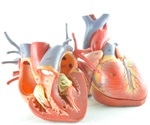

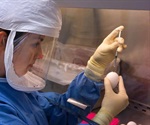

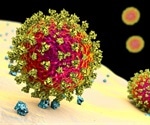

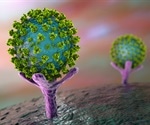
_6efcb3edcd164fa3aa82b2181c304c3d-150x125.jpg)



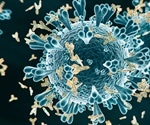
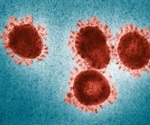

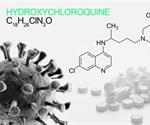























.png)












No hay comentarios:
Publicar un comentario